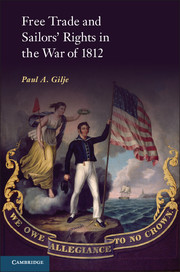10 - Empire of Liberty
Published online by Cambridge University Press: 05 March 2013
Summary
Many scholars who have examined the expansion of the United States assume that the Founding Fathers always had some grand vision of sweeping across the continent and establishing an empire of liberty. Fueled by the later success of the so-called manifest destiny, these scholars read the language of Thomas Jefferson, James Madison, and other Republicans in the 1790s and assume that their interest in expanding across space meant that they knew that yeoman farmers – God's chosen people, in Jefferson's memorable phrase – would pour over the Appalachians, fill the Ohio Valley in less than a generation, and then charge to the Pacific. Such a view grants too much prescience to the Jeffersonians. Yes, it is true that even before the Declaration of Independence, some Americans sought to add Canada to their cause. And once the Treaty of Paris established the new nation's boundaries, others hoped to add Florida to the south. But there was no great master plan, no sense that the United States would march west. As late as 1790 Jefferson was willing to guarantee the Spanish control of Louisiana if they ceded Florida to the United States. During the early republic Americans only gradually came to see expansion as part of their destiny, and even then, there remained many who were skeptical of creating an overblown republic that might easily be torn apart or become imperial in ambition and unrepublican in spirit. After the United States accidentally added Louisiana in 1803, the push for Florida became more concerted, and territorial expansion became a more salient issue for increasing numbers of Americans. By the beginning of the War of 1812 many of the War Hawks hoped to use the opportunity of conflict with Great Britain to gain new territory. Although these crass bellicose ambitions might be expressed by politicians and newspaper editors, they could never become the main explanation for a republic going to war in 1812. Instead, the conflict was best explained by proclaiming principles and ideals like free trade and sailors’ rights.
- Type
- Chapter
- Information
- Free Trade and Sailors' Rights in the War of 1812 , pp. 127 - 136Publisher: Cambridge University PressPrint publication year: 2013



